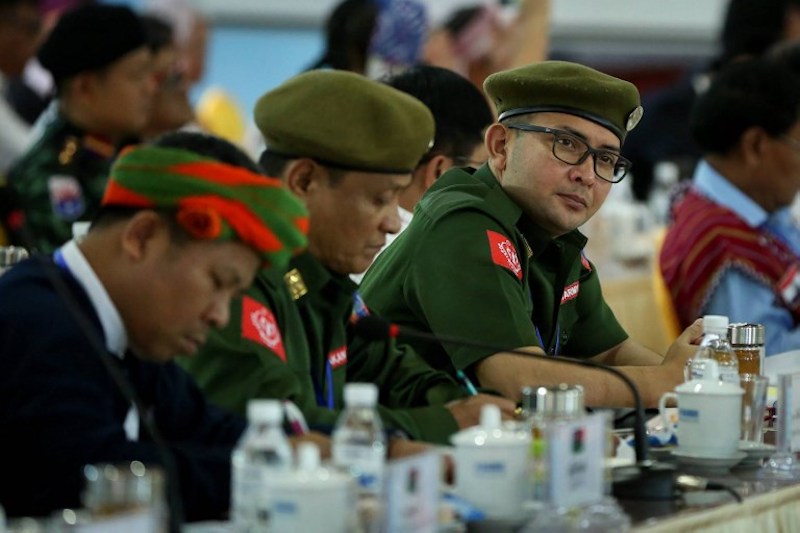In light of the escalating hostilities between the Myanmar military and Arakan Army, the Burma Human Rights Network today called on the Myanmar military to stop military activities in civilian areas in Rakhine state and called on the international community to speak out, according to a press release on their website.
“In this conflict, the Burmese Military is proving again that they have no concern for human life or the safety of civilians. The International Community must insist that Burma initiates a ceasefire with the Arakan Army to protect civilians from further harm,” Burma Human Rights Network (BHRN) Executive Director Kyaw Win said.
According to BHRN, 24 civilians have been killed since December due to fighting between the Tatmadaw and Arakan Army (AA), and worse yet, both forces have occupied civilian areas, placing villagers at greater risk of being injured or killed in the crossfire.
On March 9, AA soldiers took 11 Tatmadaw soldiers prisoner and seized their weapons after the “most intense” engagement, marking a turning point in the ongoing conflict between the two sides.
Days later, on March 13, local media reported that the Myanmar military used helicopters and fighter jets against civilian targets in Rakhine state, and on March 22, seven civilians were killed after an artillery shell landed on Si Taung Gyi village, in Buthidaung township.
Even more alarming, the press release stated that Rohingya Muslims who have remained in Rathedaung and Buthidaung townships in Northern Rakhine have said that they have seen newly placed landmines outside of their village, although it is unclear who placed them.
However, civilians have historically suffered the brunt of mines’ destructive potential in Myanmar, where hundreds of civilians have been killed or maimed over the years.
More than 20,000 civilians have been displaced due to conflict in northern Rakhine state alone since December. According to the Internal Displacement Monitoring Center, Myanmar had a total of 635,000 internally displaced persons due to conflicts and violence across the country as of December, 2017.
Meanwhile, a further 700,000 Rohingya have fled across the border into Bangladesh since fighting broke out in Rakhine in August of 2017.
Myanmar is the site of the world’s longest running civil war, which began just a few years after the country gained its independence from the British in 1948, and has continued — through various conflicts with numerous ethnic armies across the country — until the present day. Resolving the intractable conflict remains one of the signature promises of the ruling NLD party’s platform, but the ongoing Panglong peace conferences have offered little in the way of practical solutions to the end of the conflict.




